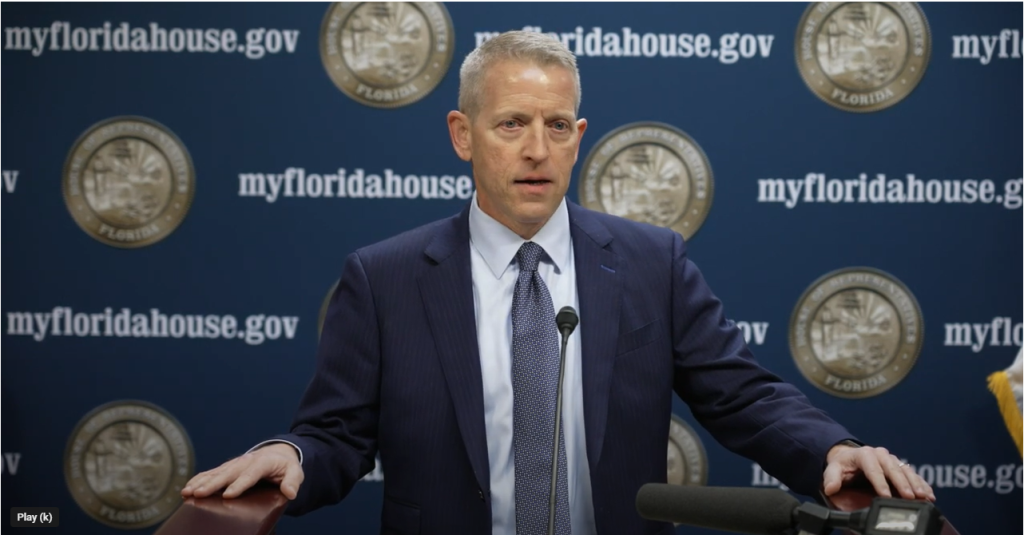
The 2023 Florida legislative session ended Friday with lawmakers passing a record $117 billion budget for the fiscal year that will start July 1.
Many education-related items were included in bills tied to the budget, including $2.2 billion for a major expansion of education choice that will extend eligibility to all K-12 students in the state, regardless of income, though low-income families will receive priority.
The new law also converts all traditional scholarship programs into education savings accounts, giving parents the flexibility to customize their child’s education. Authorized uses for funds include private school tuition and fees, personal tutors and digital learning materials. The law also raises the growth rate of scholarships for students with unique abilities from 1% to 3% annually to help avoid waitlists.
A top legislative priority of House Speaker Paul Renner, and sponsored by Rep. Kaylee Tuck, R-Lake Placid and Sen. Corey Simon, R-Tallahassee, HB 1 also requires officials to seek reductions in regulations that public school leaders have criticized as obsolete and onerous so that school districts can better compete in the new world of education choice.
“This legislation is a transformational opportunity to make it clear that the money follows the child, and parents have a right to guide their child’s education as they see fit,” Simon said as the session ended.
“We recognize that parents are a child’s first and best teachers. A street address or level of income should never replace the vital and irreplaceable role of a parent to decide what academic experience best fits the needs of their child.”
Other education highlights include the following:
HB 443, which focuses on many policies related to charter schools, including eligibility. It also further defines a “private tutoring program,” which is an authorized use of funds for scholarship students, and allows the programs to provide tutoring for to up to 25 students in any commercial building with a valid certificate of occupancy, library, community center, museum, performing arts, theatre, cinema, or church facility.
Other allowances include any facility or land owned by a Florida College System institution or university; in any similar public institution facility; and in any facility recently used to house a school or licensed child care facility within the preexisting zoning and land use designations of the facility without obtaining a special exception, rezoning, or a land use change so long as the provision of such tutoring meets all applicable state and local health, safety, and welfare laws, codes, and rules, including fire safety and building safety.
HB 7039, which renames the New Worlds Reading Scholarship Accounts to the New Worlds Scholarship Accounts and expands the program to students in kindergarten through grade five who show symptoms of dyscalculia or dyslexia or who score below a Level 3 on the statewide standardized math assessment.
The bill also expands authorized expenses to include fees for summer education and after-school programs designed to improve math skills. The bill also adds pre-kindergarten students to the list of those eligible to receive free book delivery under the state’s New Worlds Reading book distribution program.
SB 190, which would allow charter school students to play on private school sports teams and participate in private school extra-curricular activities if a private school agrees. Current law already allows homeschooled students to do this, and this bill would extend the same provisions to those who attend charter schools and Florida Virtual School.
HB 1259, which would require school districts to share capital funds raised from local taxes with charter schools. Charter schools now get money for capital improvements from a fund derived from a tax collected on gross receipts from the sale of utility services.
The total amount that districts across the state would have to share would be phased in over five years, with the first year totaling $55.9 million. That would rise to $490 million by 2028, when the requirement is fully phased in. Currently, school districts don’t have to share money raised from a discretionary 1.5 millage rate for capital costs, though the law suggests they do so.
The 2024 legislative session is set to begin Jan. 9.


